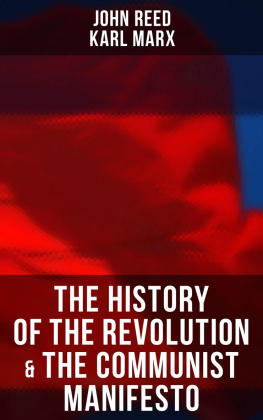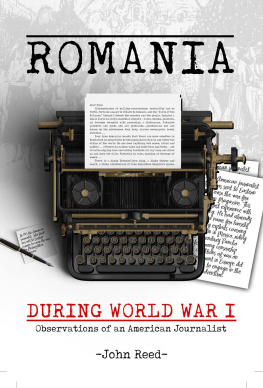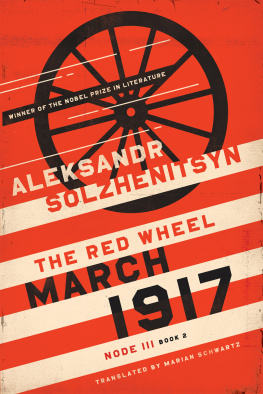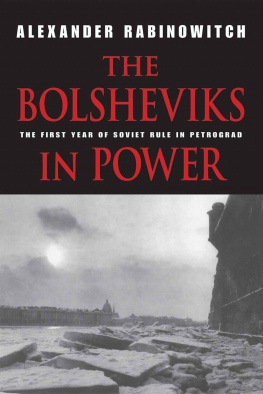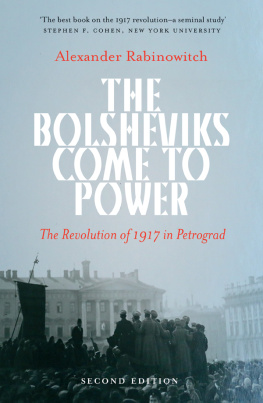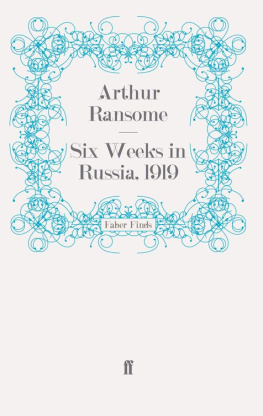
Ten Days That Shook The World
by John Reed
Table Of Contents
Preface
THIS book is a slice of intensified history history as I saw it. It does not pretend to be anything but a detailed account of the November Revolution, when the Bolsheviki, at the head of the workers and soldiers, seized the state power of Russia and placed it in the hands of the Soviets.
Naturally most of it deals with Red Petrograd, the capital and heart of the insurrection. But the reader must realize that what took place in Petrograd was almost exactly duplicated, with greater or lesser intensity, at different intervals of time, all over Russia.
In this book, the first of several which I am writing, I must confine myself to a chronicle of those events which I myself observed and experienced, and those supported by reliable evidence; preceded by two chapters briefly outlining the background and causes of the November Revolution. I am aware that these two chapters make difficult reading, but they are essential to an understanding of what follows.
Many questions will suggest themselves to the mind of the reader. What is Bolshevism? What kind of a governmental structure did the Bolsheviki set up? If the Bolsheviki championed the Constituent Assembly before the November Revolution, why did they disperse it by force of arms afterward? And if the bourgeoisie opposed the Constituent Assembly until the danger of Bolshevism became apparent, why did they champion it afterward?
These and many other questions cannot be answered here. In another volume, Kornilov to Brest-Litovsk, I trace the course of the Revolution up to and including the German peace. There I explain the origin and functions of the Revolutionary organizations, the evolution of popular sentiment, the dissolution of the Constituent Assembly, the structure of the Soviet state, and the course and outcome of the Brest- Litovsk negotiations.
In considering the rise of the Bolsheviki it is necessary to understand that Russian economic life and the Russian army were not disorganized on November 7th, 1917, but many months before, as the logical result of a process which began as far back as 1915. The corrupt reactionaries in control of the Tsars Court deliberately undertook to wreck Russia in order to make a separate peace with Germany. The lack of arms on the front, which had caused the great retreat of the summer of 1915, the lack of food in the army and in the great cities, the break-down of manufactures and transportation in 1916all these we know now were part of a gigantic campaign of sabotage. This was halted just in time by the March Revolution.
For the first few months of the new rgime, in spite of the confusion incident upon a great Revolution, when one hundred and sixty millions of the worlds most oppressed peoples suddenly achieved liberty, both the internal situation and the combative power of the army actually improved.
But the honeymoon was short. The propertied classes wanted merely a political revolution, which would take the power from the Tsar and give it to them. They wanted Russia to be a constitutional Republic, like France or the United States; or a constitutional Monarchy, like England. On the other hand, the masses of the people wanted real industrial and agrarian democracy.
William English Walling, in his book, Russias Message, an account of the Revolution of 1905, describes very well the state of mind of the Russian workers, who were later to support Bolshevism almost unanimously:
They (the working people) saw it was possible that even under a free Government, if it fell into the hands of other social classes, they might still continue to starve.
The Russian workman is revolutionary, but he is neither violent, dogmatic, nor unintelligent. He is ready for barricades, but he has studied them, and alone of the workers of the world he has learned about them from actual experience. He is ready and willing to fight his oppressor, the capitalist class, to a finish. But he does not ignore the existence of other classes. He merely asks that the other classes take one side or the other in the bitter conflict that draws near.
They (the workers) were all agreed that our (American) political institutions were preferable to their own, but they were not very anxious to exchange one despot for another (i.e., the capitalist class).
The workingmen of Russia did not have themselves shot down, executed by hundreds in Moscow, Riga and Odessa, imprisoned by thousands in every Russian jail, and exiled to the deserts and the arctic regions, in exchange for the doubtful privileges of the workingmen of Goldfields and Cripple Creek.
And so developed in Russia, in the midst of a foreign war, the Social Revolution on top of the Political Revolution, culminating in the triumph of Bolshevism.
Mr. A. J. Sack, director in this country of the Russian Information Bureau, which opposes the Soviet Government, has this to say in his book, The Birth of the Russian Democracy: The Bolsheviks organized their own cabinet, with Nicholas Lenin as Premier and Leon Trotsky Minister of Foreign Affairs. The inevitability of their coming into power became evident almost immediately after the March Revolution. The history of the Bolsheviki, after the Revolution, is a history of their steady growth.
Foreigners, and Americans especially, frequently emphasize the ignorance of the Russian workers. It is true they lacked the political experience of the peoples of the West, but they were very well trained in voluntary organization. In 1917 there were more than twelve million members of the Russian consumers Cooperative societies; and the Soviets themselves are a wonderful demonstration of their organizing genius. Moreover, there is probably not a people in the world so well educated in Socialist theory and its practical application.
William English Walling thus characterizes them:
The Russian working people are for the most part able to read and write. For many years the country has been in such a disturbed condition that they have had the advantage of leadership not only of intelligent individuals in their midst, but of a large part of the equally revolutionary educated class, who have turned to the working people with their ideas for the political and social regeneration of Russia.
Many writers explain their hostility to the Soviet Government by arguing that the last phase of the Russian Revolution was simply a struggle of the respectable elements against the brutal attacks of Bolshevism. However, it was the propertied classes, who, when they realized the growth in power of the popular revolutionary organizations, undertook to destroy them and to halt the Revolution. To this end the propertied classes finally resorted to desperate measures. In order to wreck the Kerensky Ministry and the Soviets, transportation was disorganized and internal troubles provoked; to crush the Factory- Shop Committees, plants were shut down, and fuel and raw materials diverted; to break the Army Committees at the front, capital punishment was restored and military defeat connived at.
This was all excellent fuel for the Bolshevik fire. The Bolsheviki retorted by preaching the class war, and by asserting the supremacy of the Soviets.
Between these two extremes, with the other factions which whole- heartedly or half-heartedly supported them, were the so-called moderate Socialists, the Mensheviki and Socialist Revolutionaries, and several smaller parties. These groups were also attacked by the propertied classes, but their power of resistance was crippled by their theories.
Roughly, the Mensheviki and Socialist Revolutionaries believed that Russia was not economically ripe for a social revolutionthat only a political revolution was possible. According to their interpretation, the Russian masses were not educated enough to take over the power; any attempt to do so would inevitably bring on a reaction, by means of which some ruthless opportunist might restore the old rgime. And so it followed that when the moderate Socialists were forced to assume the power, they were afraid to use it.
Next page

